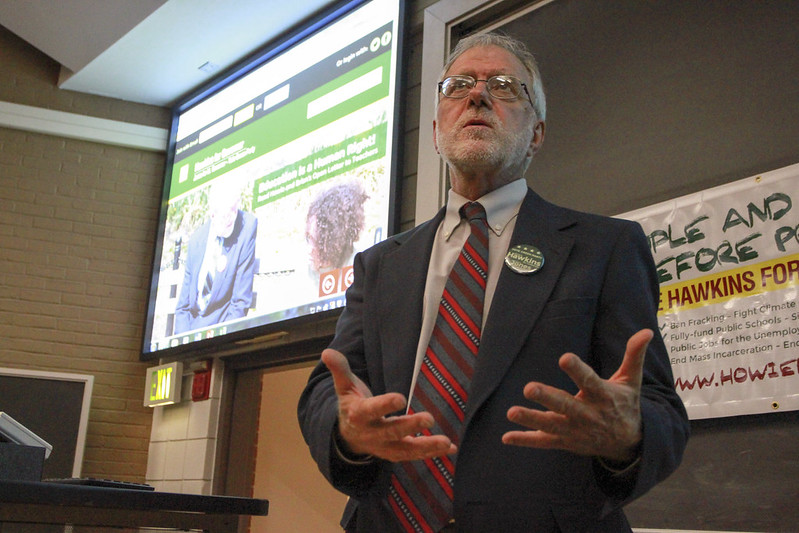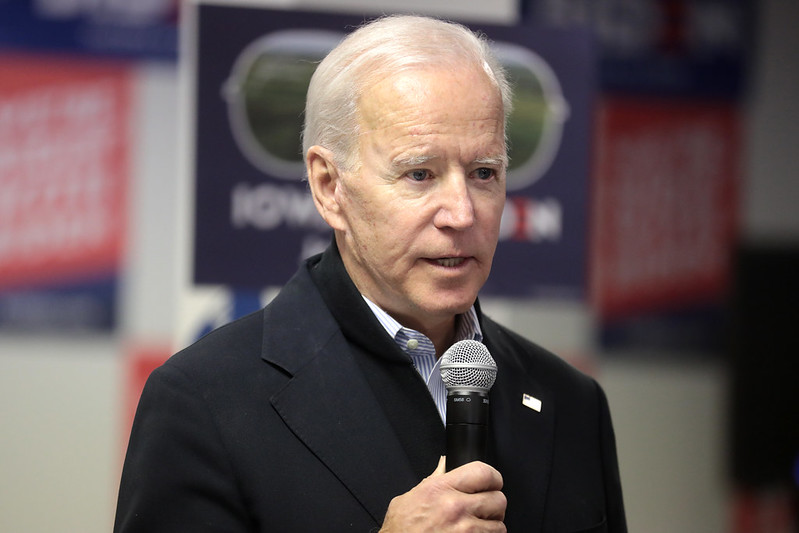Where We Find Ourselves Now
Bernie Sanders endorsed Joe Biden after suspending his campaign last week. Many have taken the news hard, while many “vote blue no matter who” types are already pushing for people to commit to Joe Biden. And a lot of people don’t want to.
Whether it be the recent sexual assault allegation, his past voting record, his poor campaigning, or just having bad policy now, many have a list of reasons holding them back from Joe Biden. For that reason, I wanted to take the time to sit down and understand what progressives’ options are going into November.
This is not meant to be an endorsement of not voting for Joe Biden and voting third party. This is my exploration as someone undecided into what that means in the current political climate. What is the best case third party vote scenario against my plan to otherwise bite the bullet and vote Joe?
There are some things, reader, that I assume you and I agree. At the very least, Biden’s policy is the right-wing of the Democratic Party, if not more exemplary of Republican policy.
The things I find most egregious about Trump’s policy are mirrored in Biden’s: the border concentration camps, his support of the private healthcare industry, and his imperialistic foreign policy are just the tip of the iceberg. They were in effect under Obama, in fact, meaning they stand little chance to be opposed unless otherwise challenged.
There are a couple things in his corner: Ruth Bader Ginsburg’s seat will likely become vacant in the next four years. Biden’s choice for SCOTUS will likely be better than Trump’s. Biden’s cabinet picks will likely be to the left of Trump’s cabinet.
There’s also a need to support Democrats down-ballot, especially progressive ones that can push better legislation. But voters can vote third party for president and Democrats down-ballot where it counts.
All of this is to say that it’s still April and the thought of knowing how to cast your vote in November is daunting. We don’t have all of the information we need, and likely won’t get the full picture until after the fact, given the state of the world during and after this global pandemic.
Is It Possible to Morally Feel Good About Not Voting Biden?
Many feel that voting for anyone besides the Democratic nominee is handing the election to Trump. We won’t be working under that assumption, despite echoes of the mythical Jill Stein voting bloc that cost Hillary the election in 2016. We could get into the depths of rehashing 2016 some other time, for now let’s just accept that it’s complicated.
To me, there are valid reasons for voting Third Party. For one, the Electoral College makes it so that there are a handful of states where Biden will win no matter how many votes a third party takes from him. For example, in 2016 in California Clinton took 60% of the vote against Trump’s 31%. In Illinois, she took 55% of the vote while Trump only took 38%.
There’s also a strong case to be made that Biden stands little chance of beating Trump anyway. For one, Trump’s approval rating in the last few months is the highest it’s ever been. He has the benefit of daily press conferences turned campaign rallies during the coronavirus, and generally the states that Biden won against Bernie were states that Hillary ultimately lost to Trump in 2016.
Third parties stand a lot to gain from strong presidential campaign performance. According to federal law, if a third party gets 5% of the vote they gain significant financial funding for the next term. At 15% of the vote they have to be considered on major debate stages leading up to the next general election.
Waiting until 2024 to introduce a third party in our electoral equation in 2028 might be too long to wait for some voters.
So What Are My Options?
I did some informal polling in my networks to get a grasp on how voters were feeling. Mixed with research into available parties, there are four options I’m considering: writing in Bernie, or voting Libertarian, Party for Socialism and Liberation, or Green.
I want to add here an honorable mention that doesn’t have to do with voting. If you can afford it and haven’t already, consider joining the Democratic Socialists of America. Although not an official political party, they have done meaningful work in Chicago and nationwide to push progressive politics outside of the two-party system.
They work closely with many of the progressive policymakers on the national scale like Alexandria Ocasio-Cortez while doing meaningful electoral work on the local scale like helping 5 democratic socialists get elected to Chicago city council in 2019.
Writing in Bernie
A lot of people, nearly half the people who reached out to me, said they plan to write in Bernie. The reasoning behind this seems to be feeling attached to the campaign or being unsure of what else to do.
While well-intentioned, I think this might be short-sighted. Bernie has always advocated for stepping in line with the democratic nominee. Short of strong performances in the remaining primary states and a dramatic democratic convention, a write-in campaign has little chance of tangible success, nor does it ultimately support the future of a third party.
Libertarian Party
I really wanted to give the Libertarian party a shake if only for the possibility of a Libertarian Socialist caucus within the party. Although few people I know are considering the Libertarian party, it has shown strength in the past and it’s likely the Bernie to Trump voter may instead vote Libertarian.
That being said, their site shows they have 20 or so candidates and their decision making process has a messy reputation.
Party for Socialism and Liberation

There were a few people sampled voting for the Party for Socialism and Liberation, or PSL. The party has a strong following and their campaign policies are absolutely the most radical of tangible third party options in America.
The PSL ticket is running Gloria La Riva, a socialist activist, and Native leader and political prisoner Leonard Peltier, who has been unjustly incarcerated for more than 43 years.
“The world is facing unprecedented crisis, none of which can be solved within the existing capitalist system. We are in a race against time. The need for the radical reorganization of society on a socialist basis has never been greater or more urgent,” La Riva said.
Their proposed policy includes replacing our capitalist system with a socialist one, making essentials like food and water human rights, allowing all access to healthcare including on-demand abortion, reparations for all African-Americans, rights to immigrants, shutting down all military operations, jailing Wall Street, and honoring all native treaties including freeing Leonard Peltier.
It’s an ambitious platform, for sure, but short of strong campaigning in the next few months it seems unlikely the party will reach the 5% mentioned above for substantial federal funding.
Green
The Green Party is the last option I considered and the closest I would come to the best choice for consideration months ahead of November. The ticket so far only has its president candidate, newly chosen ecosocialist Howie Hawkins.

In 2016, the Green Party managed 1.07% of the vote, so reaching the 5% of the vote established before would still be a feat needing a strong campaign cleverly taking advantage of the political moment we find ourselves in.
The Green Party’s policy is interesting. The page itself is dense, but reading into what the party proposes suggests an application of a socialist policy whose ultimate goal is to combat climate change.
This means nationalizing the Federal Reserve to combat private economic interests beholden to corporate interests that would otherwise damage the environment, push our political interests further into oligarchy, and promote industrial monopolies.
The platform also calls for a reprioritization of our foreign policy to not include “influential warmongering and corresponding war profits,” as well as a robust national public healthcare system.
Honestly, while I agree with the intention of the party’s policy, it just needs to be edited for clearer proposed execution. What the Green Party doesn’t have going for it is where Bernie’s policy in Medicare-for-All and Alexandria Ocasio-Cortez’s Green New Deal really shine. Concision and clear proposed execution.
Again, though, the goal here isn’t to expect this platform to be enacted by means of electing a third-party President. To me, the goal is for the campaign to meet the 5% federal funding benchmark or to manage the 15% 2024 debate stage benchmark.
So, for what it’s worth, I’m gonna follow these parties. I hope you do, too. If for nothing else, in a bipartisan system it can be increasingly difficult to remember there is a political spectrum outside of the mainstream policies of the DNC and the GOP. There are people thinking different things, and maybe we should hear them more often.







Be First to Comment